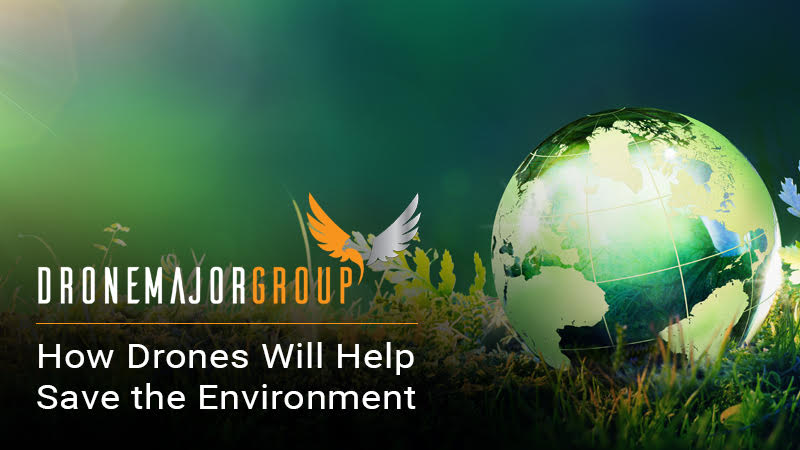Drone Major introduces significant client to Drone Evolution
Words By: Drone Major
Editorial Feature
Words By: Drone Major
Often when considering ways to reduce our carbon footprint, we are bombarded with propaganda that promotes going “back to the basics”: Eat less meat, take shorter showers, bike to work, buy a reusable coffee cup, and recycle. While all valid and likely effective lifestyle changes, we also live in a world with cutting edge technology – and it should not be an either-or decision. Solar panels, electric cars, drones, they all provide us with opportunities to make environmentally conscious decisions that are both innovative and sustainable.
Thanks to publicity from Amazon and Alphabet, the examples of drone delivery systems replacing “last mile” trips (typically carried out by trucks or vans) have clear benefits – a reduction in road traffic, which consequently means a reduction in fuel consumptions and greenhouse gas emissions. If a city like London or Los Angeles is able to replace even 10% of their truck deliveries with airborne drone systems, the positive effect to air quality, traffic congestion and general efficiency would be astronomical. A study by Smithsonian showed that a package delivered via truck produced 1 kg of greenhouse gas emissions, while the same package delivered via drone produced only 0.42 kg – a reduction in total emissions of over 54% (Smithsonian 2018). To realise this reduction in one city is great, but on a global scale? Incredible. With proper planning, technological integration and through life maintenance it is possible.
The Smithsonian study focused on lithium battery (LiPo) powered drones, which carry their own set of environmental consequences. To combat this, SKYCORP recently created Europe’s first Hydrogen Fuel Cell powered drone. With greater efficiency and net zero emissions, we have at our fingertips one of the “cleanest” options to date. Even better, companies can integrate this ultra-clean power system into their current model of drone via SKYCORP’s new programme H2DroneUnlock.

Interested in drone delivery, but concerned about where they will drop the package?
The scale of drone technology has the potential to go way beyond simple air drone deliveries with companies globally investing in and experimenting with autonomous cargo shipping. As shipping is the most carbon-neutral form of transport available today, a transition towards a more maritime intensive strategy could greatly benefit the environment on a global scale. These trips, unlike air drone deliveries, would be much more expansive and with larger payloads. Rolls Royce and Kongsberg are among the leaders in this field, showcasing designs of fully electric, autonomous ships that could sail the waters as early as 2022. Not only would sea travel be automated, but there are also plans to make the land-based loading and unloading of the cargo ships automatic as well – saving both time and money needed to perform a labour-intensive, tedious job.
Lastly, eVTOL (Electric Vertical Take-off and Landing) drones (like this concept from Audi, Airbus and Italdesign) will also contribute to a reduction in emissions, congestion and fuel consumption. The goal of these technologies is similar to that of the air drone deliveries of goods, but instead of goods, the eVTOLs will transport people. Successful integration would dramatically reduce road congestion in major travel hubs, like London, Berlin, or New York, allowing passengers to travel from major airports to the city centre without the trouble of traffic. Consequently, the number of cars on the road would decrease, as would the levels of emission and fuel consumption. Cleaner air and faster transport… what’s the hold-up? Precious cargo requires patience from both manufacturers and regulators, so it is likely that we will see widespread commercialisation of small freight deliveries before we see Uber Elevate or the likes in action.
Nonetheless, the future holds exciting advancements for drone technology and a promising second chance for the environment.